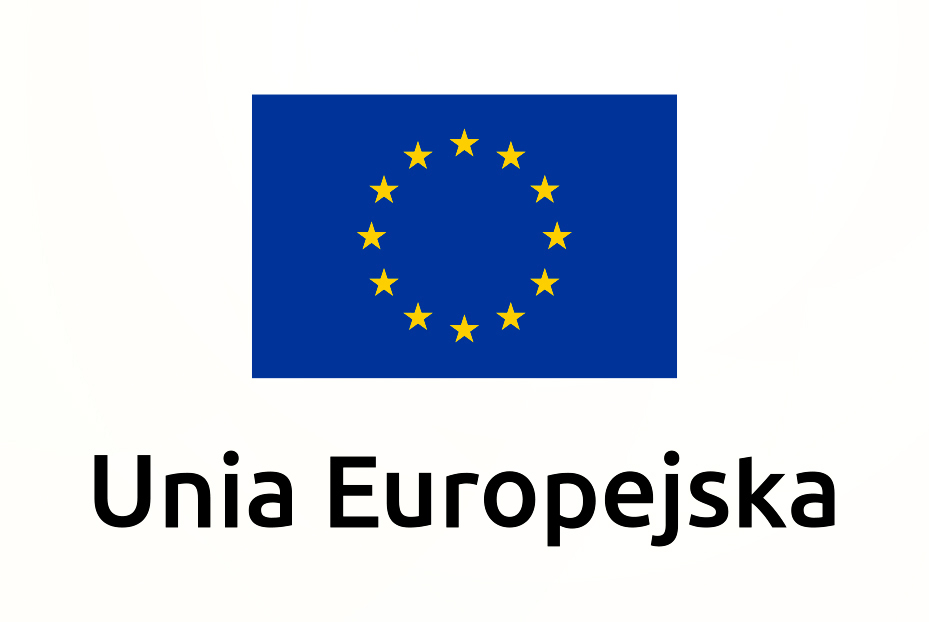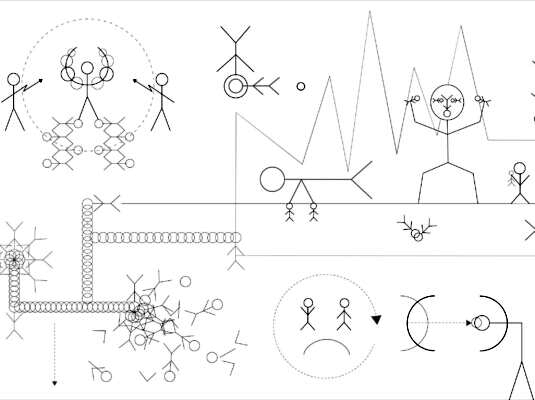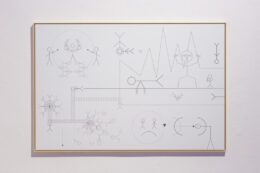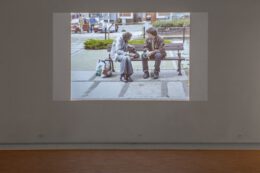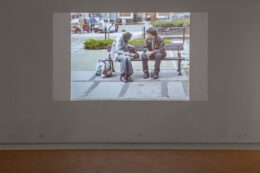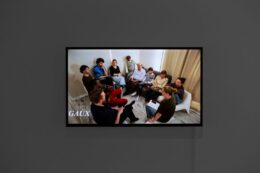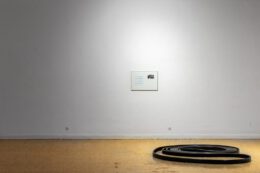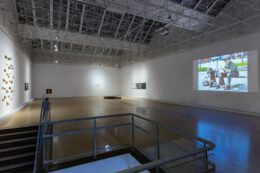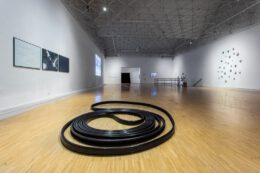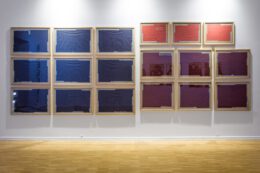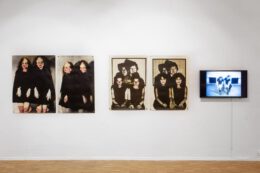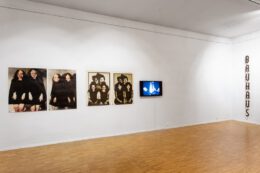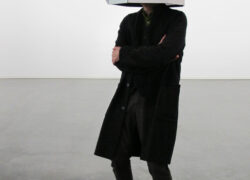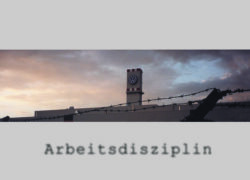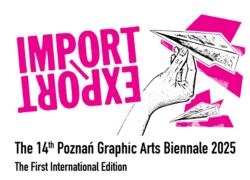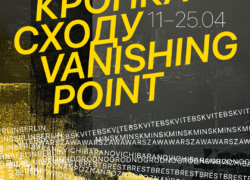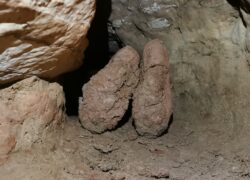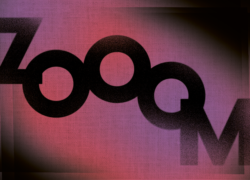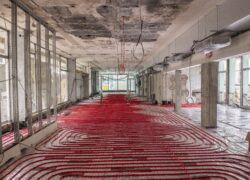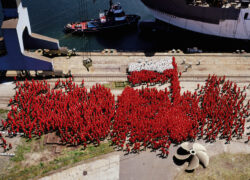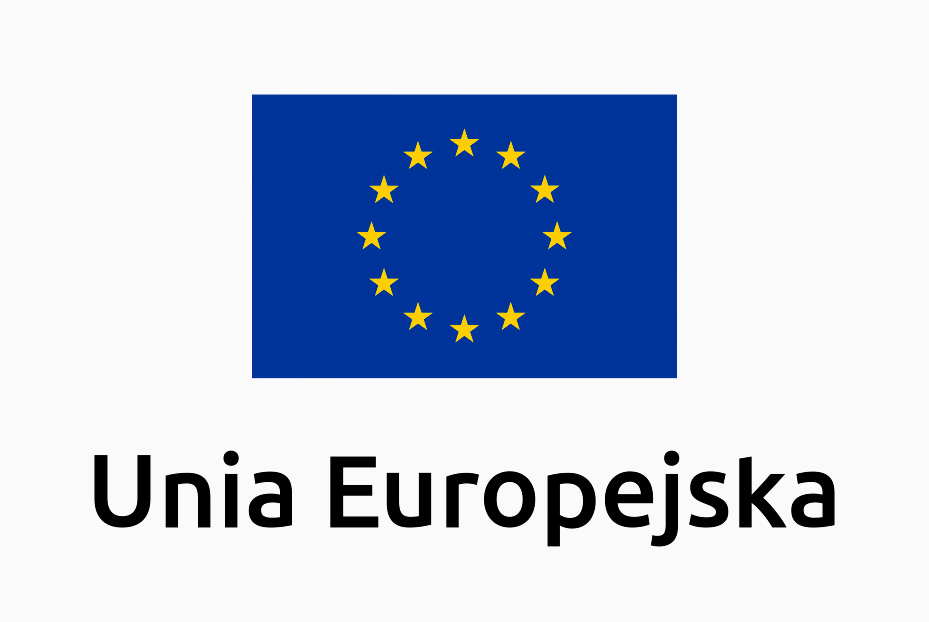The New Collection exhibition showcases a fragment of a renewed set of objects of contemporary art in Arsenał Municipal Gallery in Poznań. The idea of the collection is to present contemporary art by linking it to the unique history of independent creative activities in Poznań from the mid-20th century to the present. The collection therefore offers a narrative via the history of artists, art groups and galleries operating in Poznań. Poznań has a long tradition of avant-garde activities in the field of visual arts and boasts a diverse, active and extensive artistic community. In the 1970s and 1980s, the city was known in Poland and around the world for its many interesting independent galleries run by artists, e.g.: Akumulatory, Galeria ON, Galeria Wielka 19, Galeria AT, and later Galeria Pies, Galeria Stereo, Galeria Starter. Poznań was home to such influential art groups as e.g.: Koło Klipsa, Penerstwo and Wunderteam. Of great significance here was the art school, which for many years served as an incubator for the artistic community. The above remains an untold story, which will be recorded in the newly created Collection of Arsenał Municipal Gallery in Poznań.
The New Collection exhibition showcases the most recent acquisitions, made possible by a grant from the Ministry of Culture and National Heritage and the support of the City of Poznań.
The majority of the works on display, made by young artists, were purchased thanks to the Poznań Supports campaign of Poznań city councillors. The campaign was aimed at supporting artists who found themselves in a difficult economic situation due to the Covid-19 pandemic via purchasing valuable works for the municipal art collection.
The exhibition gathers works by the following artists: Izabella Gustowska, Jarosław Kozłowski, Rafał Jakubowicz (purchases from the Ministry’s fund), and Jana Shostak, Franciszek Orłowski, Jan Domicz, Paweł Matyszewski, Martyna Miller and Katarzyna Wojtczak, Maria Ornaff, Rafał Żarski, Tytus Szabelski, and Kuba Borkowicz. All the artists shown at this exhibition are tied with Poznań through the local art school; they are its lecturers, doctoral students or graduates. This is evidence of the enormous artistic potential of our city, a strength that has not yet been sufficiently emphasised and tapped into. Although the works presented at the exhibition were created from different inspirations and at different periods of time, they are all extremely topical and aptly comment on different aspects of our history and present.
On display at the exhibition is a fragment of a series of topical works on paper by Jarosław Kozłowski entitled Recycled News. The artist comments on the state of contemporary mass media and on the “media pulp” offered by major newspapers and news outlets. Works by Izabella Gustowska, from the artist’s seminal Relative Similarities series, rivet attention via their uncompromising aesthetics and the unbridled vitality of the women-twins portrayed. The “women power” we can see on our streets today has always been one of the major themes of Gustowska’s oeuvre. The Bauhaus sculpture by Rafał Jakubowicz offers a powerful political and critical message. The real hero of this work it is Franz Ehrlich, a graduate School of Dessau who, as a political prisoner, designed the inscription over the gate of the Buchenwald concentration camp and after his release took part in the design of the Nazi camps. After the war, unhindered, he became one of the most prominent architects of East Germany and an associate of its secret service.
The Kiss of Love by Franciszek Orłowski is a performative action which took place in 2015 in Wielkopolski Square in Poznań. The artist exchanged clothes with a homeless man sitting on a bench. In the next stage of the project, Orłowski used these clothes to create objects that knocked viewers out of their comfort zone (e.g. a door curtain). Jana Shostak, an artist who eagerly uses mass media in her creative practice, proposes a project of change in the Polish language. Instead of the stigmatising and negatively connoted term “refugee”, she wants the new migrants to be referred to, in line with a somewhat forgotten language tradition, as Nowak/Nowaczka (Polish for newcomer). The artist hopes that the linguistic change will accelerate the change of xenophobic mentality.
Tytus Szabelski’s photograph This Façade is a Lie (location view #1, Amazon, Fulfillment Center POZ1, Sady near Poznań) refers to the increasingly criticised labour relations of the late capitalist era. The artist’s work tells the story of alienation and exploitation in the workplace by one of the most powerful international corporations.
Paweł Matyszewski’s series of sculptures titled Women Workers also addresses the subject of work. Known for his very organic and haptic output, the artist draws attention to the corporeal kind of work which cannot be remunerated in economic terms, i.e. motherhood. The term “women workers” in a sense undermines individual subjectivity through association with ants, whose only sense of existence is to feed the larvae in the anthill. Martyna Miller and Katarzyna Wojtczak, the artists who run the Domie art space in Poznań, present a dossier of their cooperation with the city institution during a gallery renovation. The artists use the fees received for their work towards the renovation of the building. Jakub Borkowicz’s Quarantine documents a performance taking place during the lockdown imposed by the Covid-19 pandemic. The artist is confronted here with a sense of boredom, frustration and social isolation, shared by so many of us and our friends affected by the contagion. In the installation Walkway Jan Domicz turns an escalator handrail into an object of art. The artist is interested in the contact between private and public spaces. In his oeuvre, Domicz uses the narrative potential of space and believes that it is only a narrative that imparts this space with meaning. Maria Ornaf’s film Benighted, whose title refers to the state of being immersed in the darkness of ignorance, is a sophisticated game with the tradition of avant-garde movies. Opening up a very wide field of interpretation, the work touches upon the intuitive sensitivity of each viewer. Rafał Żarski’s graphics, whose fragment is used as the visual signage of the show, manifests the author’s interest in the mechanics of contemporary design systems, which stress effectiveness and efficiency. In an essay published in the RTV Magazine, the artist observes as follows: “The contemporary art world resembles one great nebula of relations and interdependencies between artists, curators, institutions, galleries, collectors, and recipients of art. The production of relations within the field of art is conditioned by endless artistic projects which bring together the aforementioned individuals. The contemporary art world is an area of maximum mobility and flexibility. Its dynamism stems from the multidirectional flow of streams of various projects which foster the production of art (exhibitions, festivals, publications, workshops, etc.)”.
The New Collection exhibition is a working demonstration of what Rafał Żarski defines as a set of dynamic relations between an institution, artists and works, which relations give rise to novel values, meanings and proposals. The underlying idea behind the collection is the creation of a field of art as a critical and unobvious suggestion of interpreting the present.
Marek Wasilewski
curator: Marek Wasilewski
graphic: Daily Mutation, Rafa Żarski
